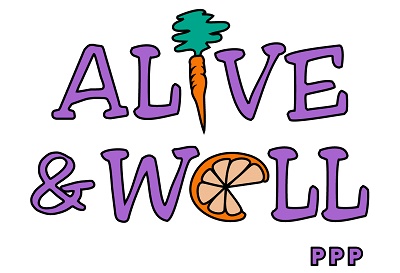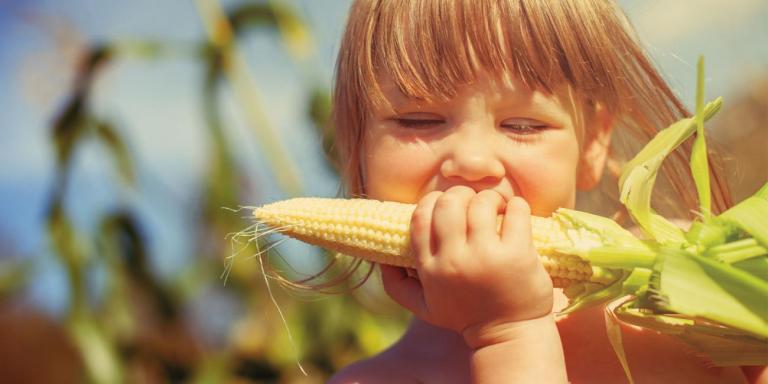The story of the foods we eat continues in the halls of government, in agribusiness board rooms, and on pages of scientific study.
And it ends with you or me in the produce section, picking up a tomato and looking for the labels that tell us where it was grown, and how.
When the buyer is a parent, or an expectant mother, the “how” carries special weight. Starting in the womb, children are especially vulnerable to chemicals associated with conventional food production. Most of us factor in price when food shopping, and organic options tend to cost more. But there are significant, though less obvious, costs associated with conventional foods as well.
Here’s a look at some of the key questions about kids, food, and the environment.
Are agricultural pesticides toxic to humans?
Study is under way. In the meantime, according to Chensheng (Alex) Lu, PhD, “We are being used as the experimental rats for studying the long-term health effects of pesticide use.” Dr. Lu, associate professor of environmental exposure biology at Harvard, notes that interactions between pesticide residues we consume and other chemicals in our surroundings cause adverse health effects.
What has been confirmed about kids exposed to pesticides?
Research suggests that children’s physical health, intellectual development, and behavioral patterns are all affected by pesticide exposure. Organophosphate (OP) pesticides, widely used in conventional agriculture, are designed to attack the nervous systems of organisms. Scientists have found that children exposed to OP chemicals while still in the womb are significantly more likely to have attention problems at age five. The same kind of exposure has been linked to lower IQ at age seven. Another pesticide used on food crops, called chlorpyrifos, has also been linked to lower IQ in children. Chronic health problems believed to be linked to pesticides include neurodegenerative diseases, hormone disruption, and cancer.
Is organic “cleaner”?
Why? The short answer is yes. The USDA organic seal means that a product wasn’t irradiated, fertilized with sewage sludge or synthetic fertilizers, or treated with toxic and persistent pesticides. To be certified, livestock can’t be given antibiotics or growth hormones, and the animals must have access to the outdoors. “Organic agriculture practices cannot ensure that products are completely free of residues; however, methods are used to minimize pollution from air, soil, and water,” the official definition of organic reads. “Organic food handlers, processors, and retailers adhere to standards that maintain the integrity of organic agricultural products. The primary goal of organic agriculture is to optimize the health and productivity of interdependent communities of soil life, plants, animals, and people.”
Are organic foods healthier for children?
Sandra Steingraber, PhD, says she has two answers in her book Raising Elijah: “As a biologist, I say I don’t know. (Nutritionists also say they don’t know.) Accumulating evidence does seem to point in that direction, but more study is required to know for sure. . . . As a mother, my position is less equivocal. When the results of the National Children’s study are finally published in 20 years, I won’t have any children living in my house anymore. As long as I still do, my job is to avoid situations that seem inherently dangerous. All pesticides are inherently poisons, and all organophosphate pesticides are, inherently, brain poisons. So I don’t feed my children food grown with pesticides. Period.”
What’s the bottom line?
A 2006 study found that switching to an organic diet dramatically and immediately protected elementary school-age children against OP pesticides. Children who ate organic foods for five consecutive days had no detectable levels of specific pesticide residues in their bodies. These chemical traces returned only when children went back to eating a conventional diet. Choosing organic food is an effective tool for protecting kids—and the environment where they learn, play, and grow.

